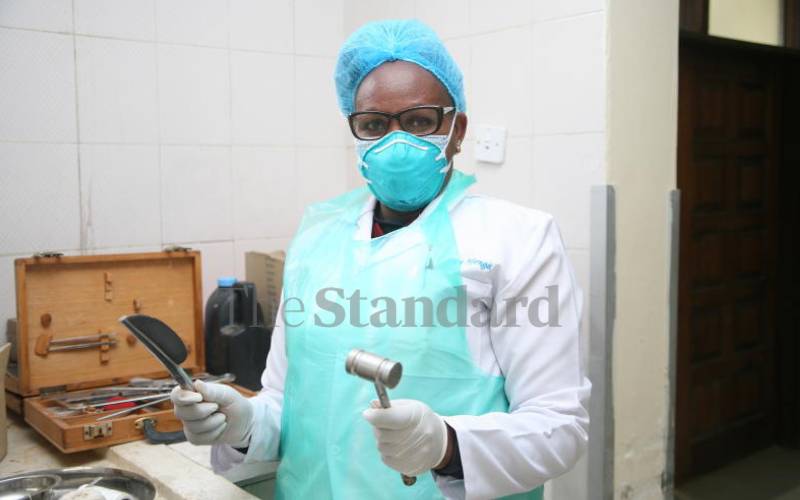
She is warm, soft-spoken and friendly; traits that many don’t associate with mortuary attendants.
“Karibuni sana,” she says with a mile-wide smile as she welcomes us to her home in Ruaka, Kiambu County.
Catherine Njenga is a teacher by profession, but a mortician by passion. She taught young children for 15 years before shifting careers after seeing how her father’s body was handled following his death in 2018.
 The Standard Group Plc is a multi-media organization with investments in media
platforms spanning newspaper print
operations, television, radio broadcasting, digital and online services. The
Standard Group is recognized as a
leading multi-media house in Kenya with a key influence in matters of national
and international interest.
The Standard Group Plc is a multi-media organization with investments in media
platforms spanning newspaper print
operations, television, radio broadcasting, digital and online services. The
Standard Group is recognized as a
leading multi-media house in Kenya with a key influence in matters of national
and international interest.











